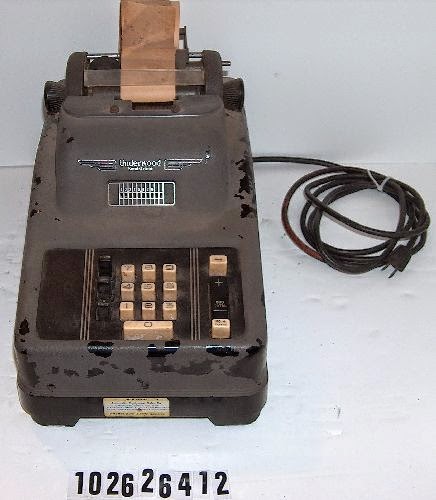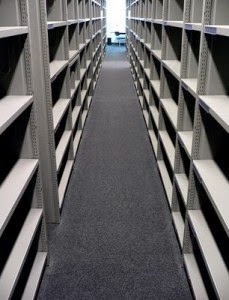I am old enough to remember when one could make a living selling something called an “adding machine.” It was fairly large but fit nicely on a desk and had numerical keys on its face (as one might expect). A roll of white paper sat on the top of it, the better to show the process by which one added, subtracted, multiplied and divided their way to the bottom line. Accountants, insurance agents, automobile salesmen, and other incredibly interesting people would punch numbers which would then with great noisy and crunchy fanfare be printed on a page to show how the potential victim on the other side of the desk how one arrived at this or that figure for this or that good or service. The father of a friend of mine, a quiet, somewhat bookish fellow (the father, not the friend) was employed by Honeywell or some such company and went around his region selling such items and supported his family by doing so until something called a “calculator” took over the world. You can still buy adding machine paper rolls, and for a bit more than the price of the rolls, something called a “printing calculator” with a digital face and a fairly quiet printing process but nobody is making a living by selling the things. In prosperous times, actually, banks give them away to new customers. I felt badly for my friend’s father; it seemed to me — then and now — that he deserved better.
I remembered my friend, his dad, and adding machines (as well as telephone booths, hat stores in every major city, and a blacksmith or two in every town) when I came upon an article about a new library that doesn’t have books. The library is on the campus of Florida Polytechnic University in Lakeland, Florida. There are comfy chairs and nice lighting, and the like, and a resource desk with helpful…librarians?…but no books. I didn’t read about this in The Onion, unfortunately; it’s apparently a legitimate article from Yahoo! about a real place and you can read about it here. I probably should not have been surprised; my younger daughter went through her entire high school career without cracking open a textbook, since all of her study materials were online. That a college should take things a reverse step further, or backward, is not surprising, though interestingly enough the individual courses offered at the university in question generally require textbooks.
I get it, kind of. Research and reference books these days are of temporary value at best. The more we learn the less we know. Today’s conventional wisdom is all too often obsolete tomorrow. It makes no sense to replace a reference book every year or three (the Physician’s Desk Reference comes to mind) when it is available as a phone app that is updated more or less constantly. But. But. If we’re at the stage where a library doesn’t need books, why do we need a resource desk? Why do we need a librarian, when we can just pull our phones out and ask Siri?
This may be the first step in a trend, and there are advantages to it, but it doesn’t mean that it is good. I made one of my earliest contacts with an adult to whom I was not related) at a library. Mrs. Helen McBride, a librarian at the Lane Avenue Shopping Center branch of the Upper Arlington, Ohio Public Library, was one of the first grownups I can remember who was a friend to me in my somewhat lonely, very bookish early childhood. She actually took me seriously (which may or may not have been a good thing) and listened to me no matter how busy she was. I learned about an entire universe of books the day that she took me by the hand and led me in between some bookshelves and showed me row upon row upon row of mystery novels. My six year old self resolved to read every book on every shelf. I’m still working on it, even as I’ve contributed, here and there, to adding to the volumes on those shelves. Is that over, or close to being over now for kids and adults alike? I would hope not. I’d like to think that there is still a place in the world for the Helen McBrides who would take the time to open up new worlds to a bespeckled fat kid wandering into the library by accident or design. Alas, it may not be long before there is no “in” to wander into any more. It will reside in the same place that adding machine does.
Please read the article that was the saddle for my high horse (if you missed the link above, you can find it here) and tell me: do you think that this is where we are headed? Is this a good thing? Or not? Why?


